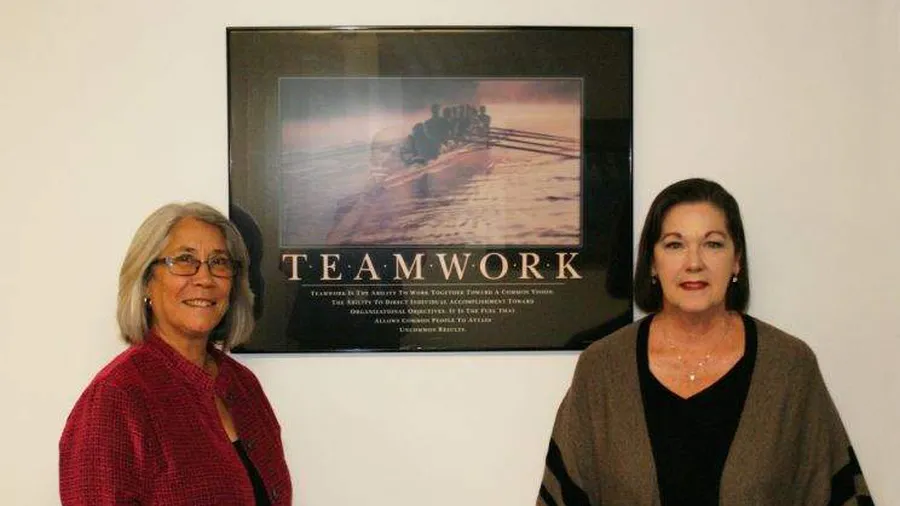Public Defender
Thirteenth Judicial Circuit
Pepin Students Shine With Holt’s Work-Training Program

TAMPA — Pepin Academies founder Crisha Murray-Scolaro made a phone call 10 years ago that would dramatically change the lives of dozens of the charter school’s students.
On the other end of the line was Hillsborough County Public Defender Julianne Holt.
Murray-Scolaro recently had attended an event where Holt gave the keynote address. The instant she heard Holt speak, she knew she would be the perfect person to approach with her idea of a transitional job training program for Pepin, which serves elementary, middle, and high school students with learning disabilities.
The program would place Pepin students ages 18 to 22 on job sites where they would gain real work experience and garner skills that they could use to land gainful employment.
That first conversation mostly was one-sided, with Murray-Scolaro doing most of the talking.
When she finally took a break, Holt was quiet — and, she was sold.
Holt said she was unsure how she could fit the program into her budget, but overall knew the partnership would be a good fit.
“I like to help people who need some help,” she said. “We had a lot to offer and so did the students.”
A decade later, Holt’s generosity has helped dozens of Pepin students obtain valuable work training and bolstered a program that now involves both public and private employers including Publix Super Markets, TECO, and the Tampa Police Department.
Thanks to Holt, Murray-Scolaro can point to its oldest partnership as an example of the program’s success to employers who are hesitant to sign on.
Currently, about 45 students are enrolled in Pepin’s transitional program. About 20 are stationed in a classroom located in Holt’s downtown office.
The classroom is staffed with job coaches and a certified exceptional student education teacher who assist both students and employers with training and personnel issues.
Students assigned to Holt’s office work in the intake department handling duties like data processing, scanning files and copying documents.
It’s considered the office’s most important department and involves working with highly confidential information. The students take their responsibilities seriously, often catching errors made by co-workers and telling their parents they cannot talk about their jobs, Holt said.
“The work is done well,” she said. “They are held to the same exact standards as our employees and often exceed that.”
Initially, students were separated from the office’s permanent workers with their own break room and work area.
Students now interact and work alongside permanent staff, the result of diversity and inclusion training over the years, Holt said.
The program now has become an “integral part of the office,” she said.
“They’ve become a true part of the fabric of the office,” she said.
Students Victoria Smith and Emily Ramos, both 20, say the jobs they’ve had through the transitional program have been rewarding.
“It gives you job experience and lets you experience how it’s like to be an adult,” she said.
Ramos concurred.
“It gives me another opportunity to work in places I’ve never experienced,” she said.
Pepin hosted its Community Gala, the school’s annual fundraiser, on Thursday.
Keynote speaker Quinn Bradlee — a youth engagement associate with the National Center for Learning Disabilities — visited the program’s classroom and spoke with Pepin students about his living with dyslexia.
Bradlee, founder of Friends of Quinn, an online community for people with learning disabilities and their supporters and author of A Different Life: Growing Up Learning Disabled and Other Adventures, said he wants to create documentaries about programs like Pepin’s to show a side of people with learning disabilities that is rarely seen.
The goal is to help others, he said.
“With dyslexia, you don’t really overcome it but you learn how to cope with it,” he told the students. “Once you learn how to cope with it, then you can help other people.”
For the students, the opportunity to work in a real job setting often boosts their confidence and self-esteem, Murray-Scolaro said.
It also provides the chance to change an employer’s perspective about a group of people who often are ignored or discounted because of their disabilities, she said.
“They want to be heard,” she said. “They are very aware of their gifts and they are very anxious to share them.”
Holt, however, insists she’s the lucky one.
“There’s no pressure on me to do anything extraordinary but be a good boss and partner and be a grateful person,” she said. “I’m fortunate that (Murray-Scolaro) let me be part of it.”

